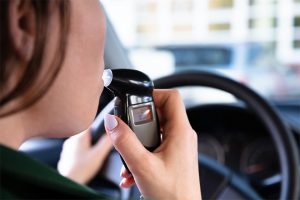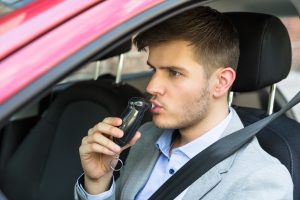

Texas DWI Breath Tests Can Return False Positives
Whether you’ve personally faced a Texas DWI before or not you’re likely familiar with the most common way evidence against you is collected breath tests. Upon pulling you over while driving, a police officer may (upon reasonable suspicion of your intoxication) direct you to blow into a hand-held instrument (also called a portable breath test or PBT) designed to measure your alcohol level (sometimes referred to as Blood or Breath Alcohol Concentration or BAC).
While there are a variety of methods that these handheld devices use to calculate or measure this number, they are almost all designed to detect chemical components of alcohol. The problem is, the substances are not unique to alcohol alone. There are thousands of them and small, portable machines are not designed to tell the difference between which is which. Because you may have more than one type of substance on your breath at any time, a machine could return a false positive reading or an elevated reading, which can result directly in your arrest. And it’s more common than you might think.
Diabetics, for example, may exhale acetone or ketone derivatives which are picked up by breath tests as alcohol even though it is recommended that diabetics not consume any alcohol at all. Smokers often exhale up to 30 times moreacetaldehyde than non smokers and, you guessed it, the compound is reported by machines as “alcohol” Had to siphon gas into your car? You might test positive for alcohol. Been involved in a painting project with chemical strippers or fumes? You too might be at risk? even if you haven’t had a single sip of alcohol.


The classic law enforcement argument is that there is only a problem if the results are at 0.08% or higher, which would be rare under most “harmless” scenarios. But I think we can all agree that less-than-exact science is not the kind of standard most people would feel comfortable determining guilt or innocence. Likewise, you might be asked to blow into an breath test machine after you have been arrested and are already at the police station or jail. This machine is also wildly inaccurate and susceptible to false positives and inflated results due to innocent substances. And this is precisely why lawyers like myself concentrate on Texas DWI criminal defense. You are entitled to be innocent until PROVEN guilty, not “indicated” or “suggested” guilty.
While there’s never any reason to be intoxicated behind the wheel or driving under the influence? you shouldn’t have to worry that harmless actions will land you in court or jail. So if you suspect you may be at risk for a false positive result, refrain from driving if possible. Or, if you must drive, be sure to obey all laws of the road and eliminate reasons why a police officer would feel the need to pull you over. And, if you are directed to “blow” express your concerns to the police officer without being rude or defiant. Being aware of the pitfalls of this evidence collection process can go a long way towards strengthening your future defense.
To discuss your concerns with an experienced Texas DWI lawyer, call us at (682) 204 4066!
Similar Posts by The Author:
Publicaciones Similares del Autor:
(682) 204-4066 We cannot receive pictures via text so please send those via email or hand deliver to our office.





